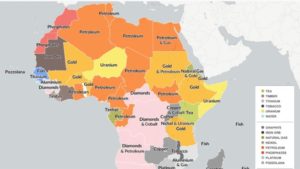
They were also monolithic and complex. Over the years, enterprise resource platforms (ERPs) have lost momentum because the very qualities that made them indispensable – rigid control and standardised processes – have become limitations for modern organisations.
As business models become more agile and complex, these systems are struggling to accommodate cross-functional collaboration and modular innovation, says Mandla Mbonambi, CEO of Africonology.
Gartner predicts that more than 80% of companies will actively change their ERP strategies over the next two years, focusing on modular architectures designed to increase speed, reduce risk, and better manage digital transformation.
[1] Next-generation, modular architecture offers considerably more freedom and a lower total cost of ownership. It can also be customised to fit within specific industries or niches, enabling vertical-specific solutions, AI integration and faster time to value.
“The value of transformation should be measured by how adaptable it is,” Mbonambi continues. “Particularly in the African market, which can’t afford to lock into rigid and expensive systems that are becoming liabilities.”
Modular and selective ERO adoption in Africa is increasing, not only because of the flexibility and agility they offer, but because these systems are far more inclusive. Small to medium enterprises (SMEs) can take advantage of its cost and agility, implementing relevant modular elements as required, and enterprises can benefit from its customisation capabilities, fine-tuning functionality to fit demanding and strategic scenarios.
“Legacy systems have become a sunk cost,” says Mbonambi. “They’re too expensive to upgrade, too rigid to evolve and too complex to scale. They introduce friction where there should be fluidity and often trap companies into costly upgrade cycles with little tangible return.”
What made sense for multinationals 20 years ago doesn’t make sense for African companies today. Local organisations need tools that match the continent’s growth tempo, infrastructure constraints and its growing ambition.
Cloud-native ERP platforms offer a viable alternative because they are more than just a technology upgrade; they offer companies the opportunity to undertake a strategic reframe. Monolithic systems lock companies into predefined workflows and long implementation cycles, but modular systems allow companies to integrate functionality incrementally.
“There’s no need to be held hostage by legacy systems and complications,” says Mbonambi. “Modern platforms are simple by design, so even implementation takes a fraction of the time that it used to take to implement an ERP – think weeks as opposed to months.”
Of course, the ERP conversation isn’t complete without considering the impact of AI. Modern platforms are built with this technology at their core, with automation, real-time analytics and embedded intelligence tools which are critical to business growth in highly competitive markets. Companies can proactively manage inventory, forecast demand and personalise customer experiences without having to add layers of operational burden.
That said, leapfrogging over legacy ERP is more than just a conversation about agility and better tools.
“There has to be a mindset change,” says Mbonambi. “Protecting legacy investments may feel safe, but can result in missed opportunities and delayed innovation. The risk is stagnation. Change means prioritising a strategy that focuses on agility and asking if current systems are anchoring the business to the past instead of enabling its growth.”
African companies have a rare chance to sidestep the long digital detours that their global competitors had to take with clunky ERP platforms. They can move straight to composable platforms that are mobile-ready, cloud-optimised and designed for distributed teams. It’s a chance to leapfrog into agile ecosystems which connect departments and partners easily, and that can be customised to really deliver on unique expectations.
“Already, there is a wave of African companies designing their operations around flexibility using microservices and integrating low-code tools, deploying only what they need when they need it,” says Mbonambi.
“Modularity gives them the freedom to decentralise problem-solving and experiment with safety. As this technology becomes increasingly accessible and cost-effective, it’s a good time for companies to change direction with ERP systems that aren’t going to hold them back.”
At this crossroads of ERP legacy versus leapfrog, the choice will come down to a technology that lets companies evolve rapidly and adopt new technologies easily. Is it modular? Most likely. [1] https://www.gartner.com/en/documents/6489071


